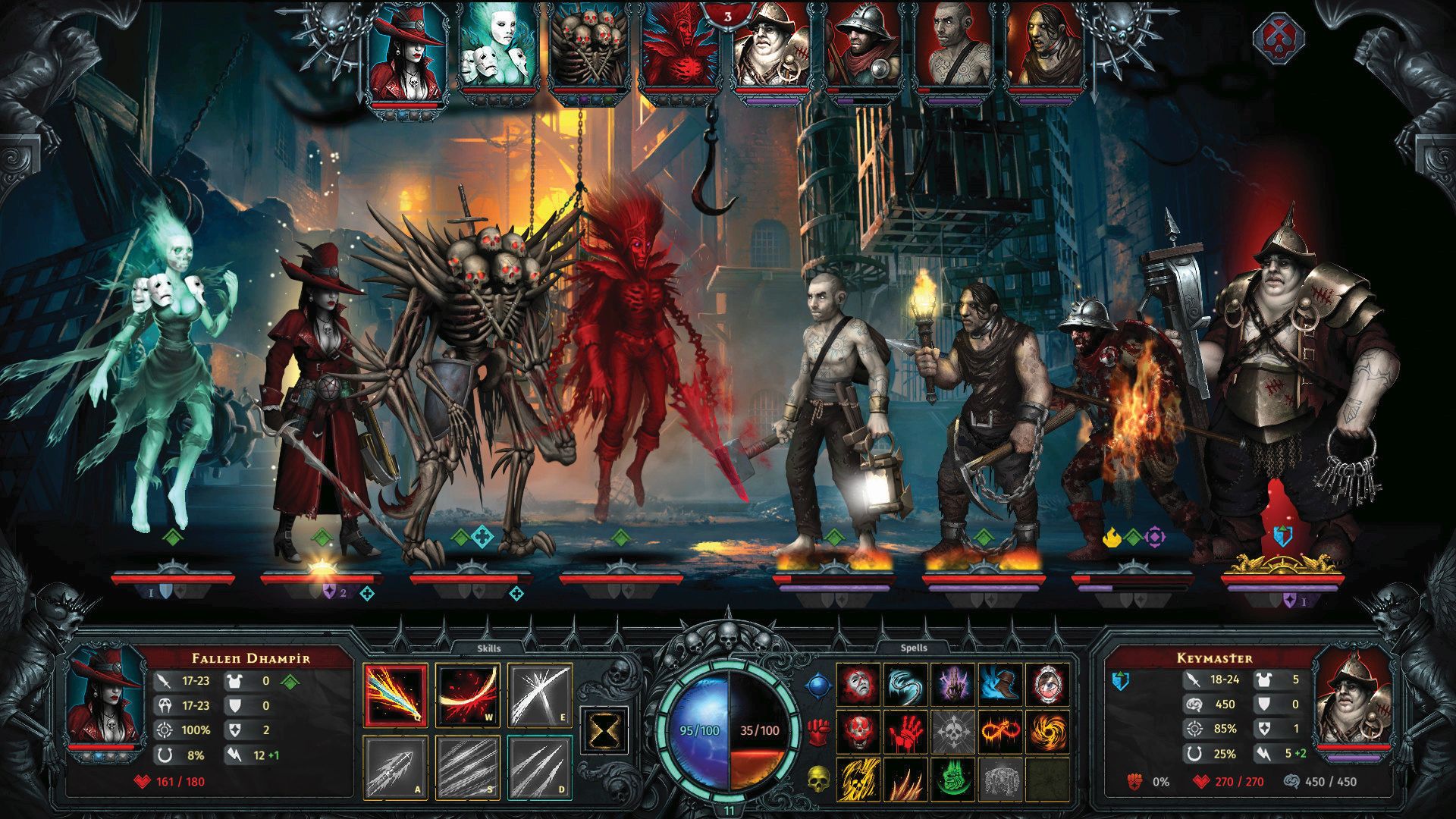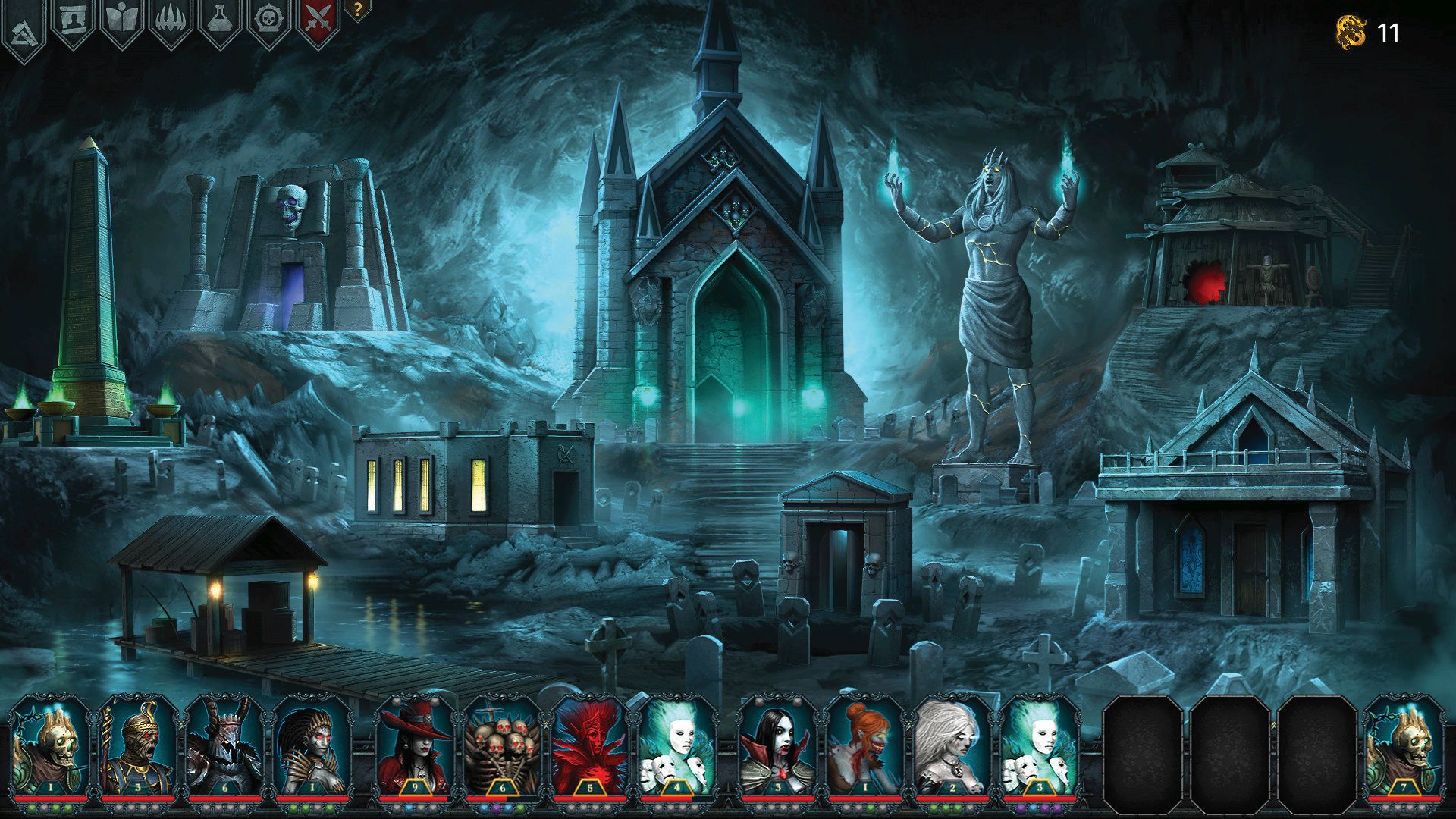Iratus: Lord of the Dead is a roguelike where you play as the bad guys
Battle heroes in this reversal of Darkest Dungeon.

Imagine Darkest Dungeon, but instead of playing as a group of adventurers battling terrifying monsters, it’s the other way around. In this turn-based strategy game you play as Iratus, a very emo necromancer who loves killing people, stealing their body parts, and creating monsters from them.
The Darkest Dungeon influence is clear from the off, with its flat, side-on perspective, punishing difficulty, and deep tactical combat. Russian developer Unfrozen wears its influences proudly on its sleeve. But visually it has more in common with a Blizzard game—a dark fantasy world with wispy magic, chunky monsters, and an ornate, decorative interface.
Iratus, being a Dark Lord, doesn’t get his own hands dirty. Instead he sends minions to do his bidding. When you kill a human they drop body parts as a kind of disgusting loot: limbs, organs, and other squishy bits. And from these you can conjure up foul beasts to do your bidding, including banshees, dark knights, zombies, phantoms, and vampires.
You create these creatures with a simple crafting interface, and it’s possible to beef up a newly created minion’s power by feeding it brains—one of the most valuable things an enemy can drop. Each monster has a skill tree with a variety of powers, buffs, and other useful abilities, but they’re also disposable. If one dies it’s not the end of the world—Iratus can just create another to replace it.
In practice this is a fairly simple turn-based strategy game, with a back-and-forth flow reminiscent of an old Final Fantasy game or, more recently, Slay the Spire. But the sheer volume of abilities is where the real depth lies.
There are hundreds of ways a combat encounter can play out and various different types of damage to deal including, my favourite, stress.
Some monsters such as the banshee, a screeching, white-eyed spectre in a ragged wedding dress, aren’t particularly powerful, but have powers that will sap an enemy’s sanity. Deal enough stress damage and it’s likely your target will go mad and begin attacking his own allies.
Keep up to date with the most important stories and the best deals, as picked by the PC Gamer team.

Early grave
Between battles you can retreat to Iratus’ spooky, moonlit graveyard and give injured minions time to heal. He’s not totally evil. You can also use resources harvested in combat to build new structures, in turn unlocking more exotic monsters to fight with. With each successful battle you move deeper into a dungeon, leading towards a final clash with a boss, which Unfrozen says could take up to ten hours.
It’s a roguelike, so if you have no minions left and no body parts to make new ones, it’s game over. The subject matter is pretty dark, but this is an enjoyably tongue-in-cheek game. Iratus is voiced by Stephan Weyte, who PC gamers of a certain age will remember as Blood protagonist Caleb, and he chews the scenery magnificently. He’s one of those pantomime villains who really revels in being evil, and the chance to play as the bad guy is always welcome in a game like this. But what’s his grand motivation? His mission? I asked Unfrozen and the answer was simple: death.
Iratus: Lord of the Dead doesn’t have much in the way of new ideas. It’s a collection of systems borrowed from a bunch of successful PC games, and quite blatant about it. But thanks to some lavish artwork, a feeling of polish, and that monster creation system, I’m more intrigued to play the final game that I thought I would be. But if it’s a game with a gentle difficulty curve you’re after, Iratus may not be the emo necromancer for you.
If it’s set in space, Andy will probably write about it. He loves sci-fi, adventure games, taking screenshots, Twin Peaks, weird sims, Alien: Isolation, and anything with a good story.


